Da Community is London’s East End collective for emerging Black artists
Written by ABR on 15/05/2023
Monday nights are sacred for the young musicians who descend on the Colour Factory in Hackney Wick for Neue Grafik’s Orii Jam, where they share an alternative blend of hip hop, neo-soul and R&B. “It’s become almost like a church for people,” says Max McKenzie, a rapper and comedian who grew up nearby in Forest Gate. He first stopped by the jam in 2021 and has been hooked ever since. “Everyone who gets to perform on stage is a bit of a prophet,” he says, “they get to say what’s on their mind. Sometimes they say some really crazy lacklustre stuff, sometimes they say some really insightful, heartfelt things. You don’t know what’s going to happen.”
Orii has become a safe space for artists who want to “express their soul, their truth, their honest answers,” he says, and the atmosphere that it creates is electric. “It’s just a vibe,” freestyler Nizforeva says, “everyone just aligns so well.” The event has since spread across the river, on Tuesdays, it’s at Jumbi in Peckham, while Shekhem, who formed an impromptu jam after hours he called Mezzo’s Corner, has started his own night at Gigi’s in Hoxton. In many ways, its success is down to the people who make the pilgrimage each week: a crew of more than 20 Black creatives from east London that include photographers, artists, set and graphic designers, videographers and, of course, musicians, who call themselves Da Community.
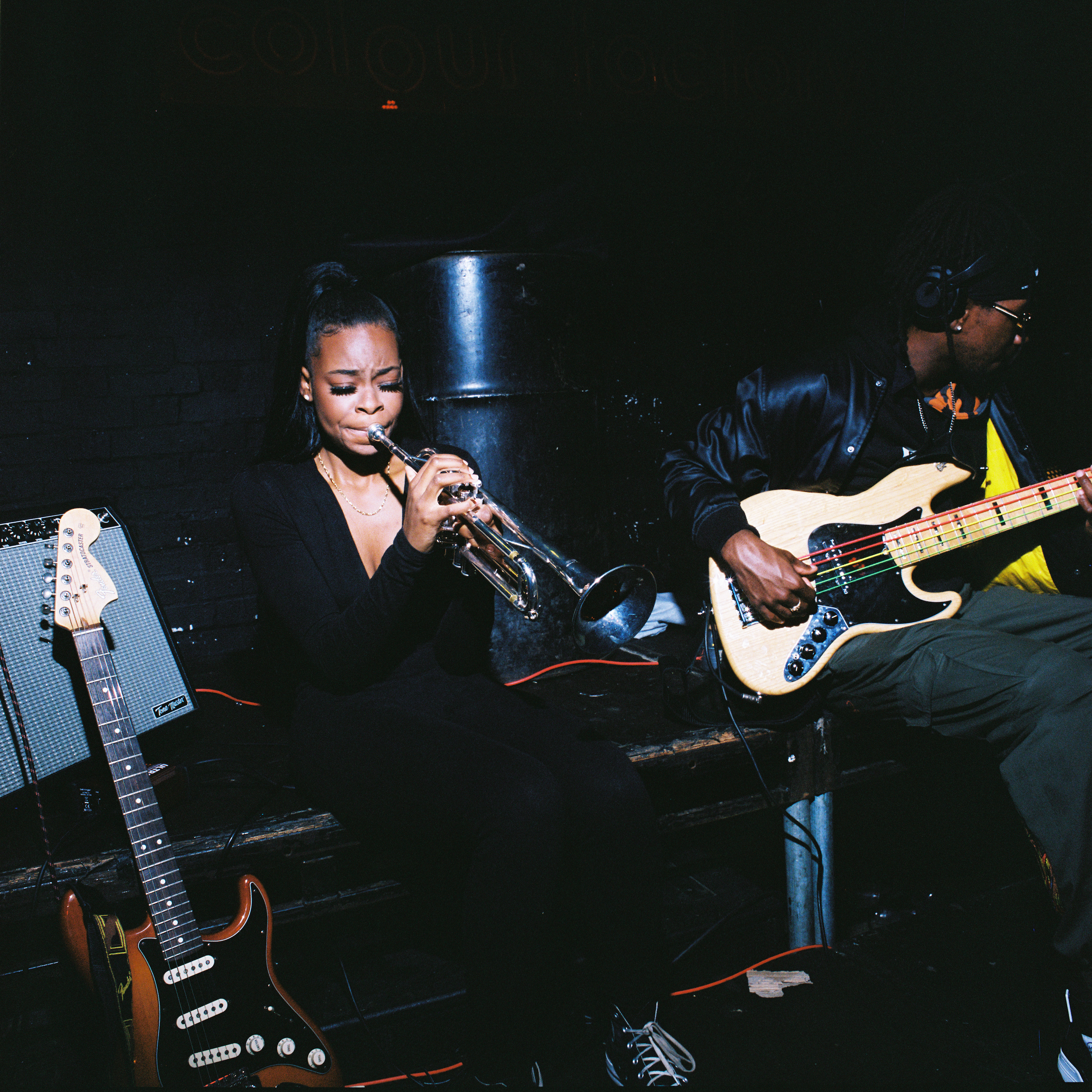
The tight-knit group think of each other as family first, collaborators second, and never as competitors. “We’re all talented, and we all add something different,” says Esther Nualoe, who, as a half-Nigerian singer, resonated with the Orii’s Yoruba name, which means ‘soul’. “Nayana has a very Nina Simone, deep voice, whereas I’m more of a Lauryn Hill. I sing and rap, so we just compliment each other beautifully.” Allyson has a sultry tone, while Malaika’s voice is big, “way bigger now, and this space really fostered that,” she says. Shanice Hall plays jazzy beats on the trumpet, Michael Amou is on the drums and mellow Chrys Enow comes to life on the keys.
They draw on their experiences coming of age in London, as well as their roots that span the African diaspora. “In Black culture, music is an important and powerful thing,” Esther says. “Fela Kuti said music is serious; you don’t play with music because music has the power to heal people; the frequencies in music can make people feel.” This resonates with Da Community, who believe authenticity and spirit are what sets them apart. “We’re more focused on the feeling than the commercial,” says Mar!k, one of the collective’s producers and a talented musician in his own right. The 21 year old plays the bass while singing — a contrapunctual feat that even Sting admitted took hours of practice. “It’s very real, the stories, the music. It’s our aura. We give pieces of ourselves in the music.”
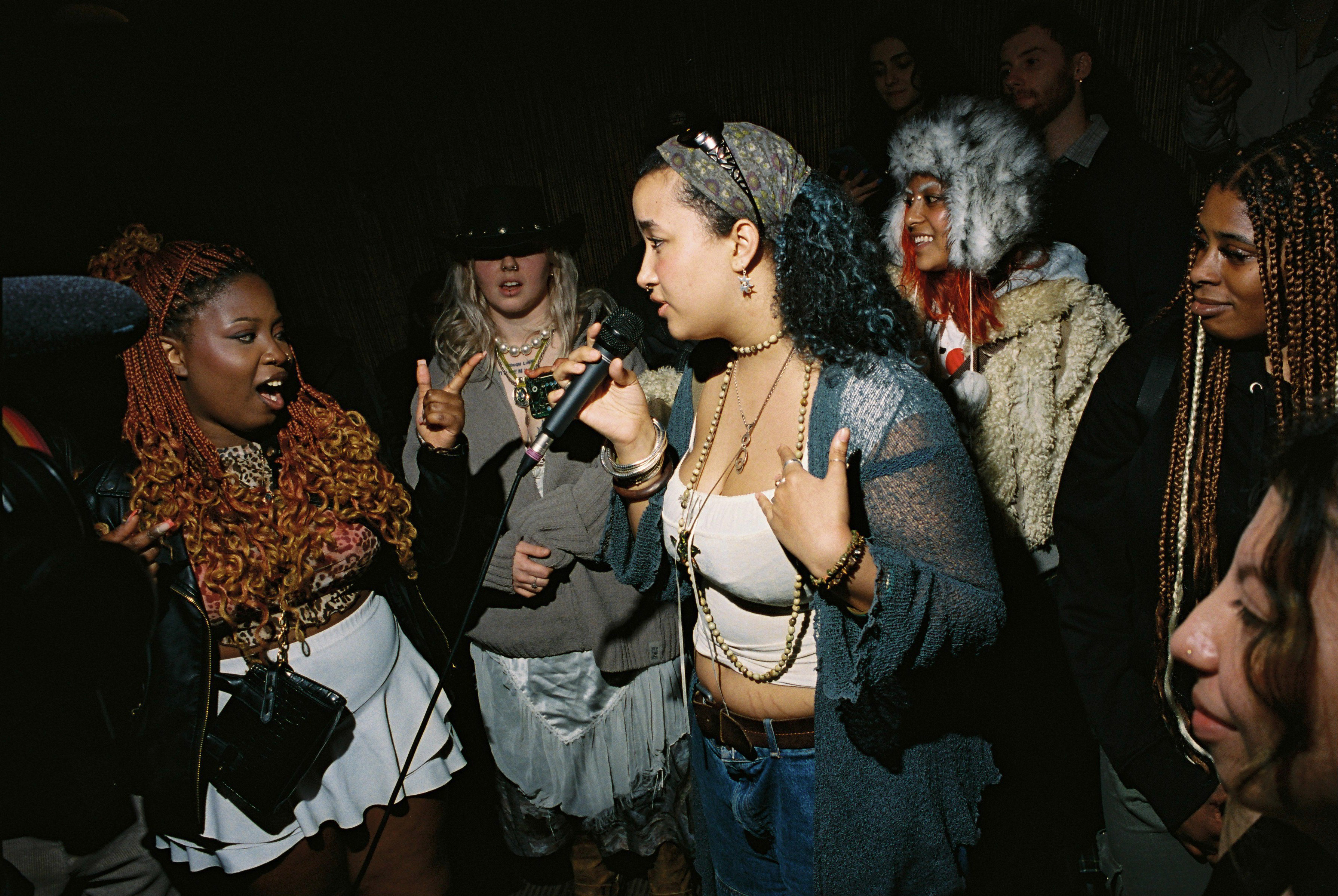
Mar!k taught himself to mix music in college when he would sneak into the Apple Store because he didn’t own a laptop. He hopes Da Community can be something like the alternative American R&B band The Internet or J. Cole’s production company Dreamville, which is home to Ari Lennox and rappers Bas, J.I.D and EarthGang, but he also wants to reflect the UK scene today. “Right now, I feel like London is going through a bit of a music renaissance, we’re very much coming away from the advances of things like social media and the growth of TikTok, and music is becoming a lot more honest than it used to be,” he says. “Places like record labels don’t have as much power as they used to, which is why groups like ours are pushing forward even more.”
In many ways, Da Community stands up to the inaccessibility of the music industry, where financial barriers, a lack of investment in Black music creators and a culture of entrenched racism prevent their progression. In 2021, a report by Black Lives in Music found that the majority of Black employees in the UK’s music industry experience racism, from micro-aggressions to racist language, while 43% of Black female musicians felt the need to change their appearance due to their race or ethnicity.
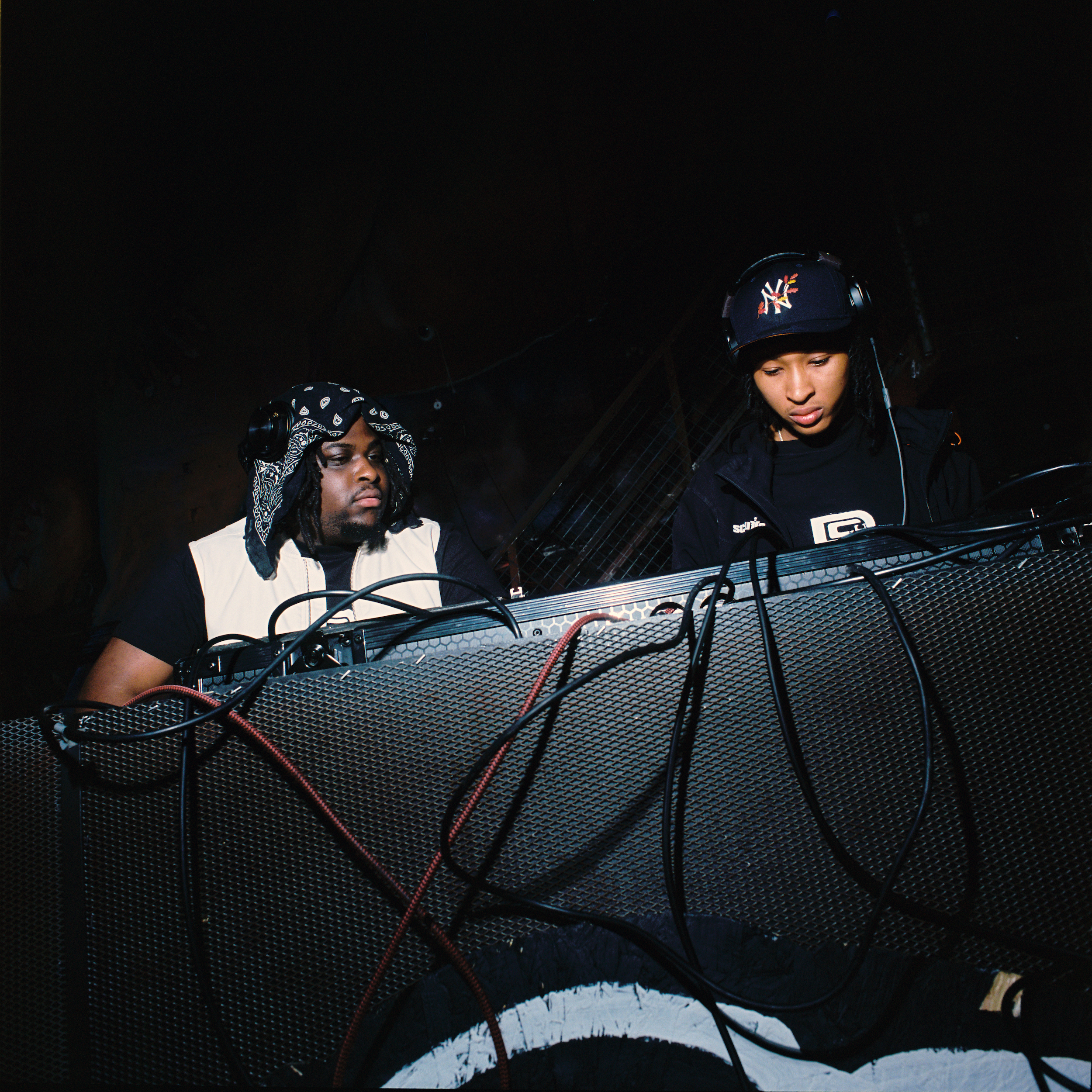
Outside the group, Nayana, a young singer who dropped her own solo album in March, is a community engagor working with the London-based music organisation UD, which gives Black musicians and working-class people a leg up. “It’s a white man’s industry,” she says. Even when you get to the top, “the team might not understand the realities you’re going through. A lot of the time, the audience gets less diversified because they’re not really pushing for the Black audiences, so it’s easy to get lost in the machine of everything.”
As an event organiser, DJ Xhnwav, who runs live music platform Pretty Twisted, has seen first-hand the importance of Black spaces that are run with their audiences in mind. Too often, parties will “move to an audience that is more profitable,” he says. “But I’d rather stick to where I am as a creative, and as a person of colour. It’s very important to understand where our roots are coming from.” The perk of being part of a collective is being surrounded by people who share the same experiences, says Nayana. Together, they have a diversity of talent and ideas: a supergroup working to bring a common vision to life. “If one of us blows, we all blow with 20 men behind you,” she says, “you’ve already got 20 men in your team pushing you, so that goes a lot further.”
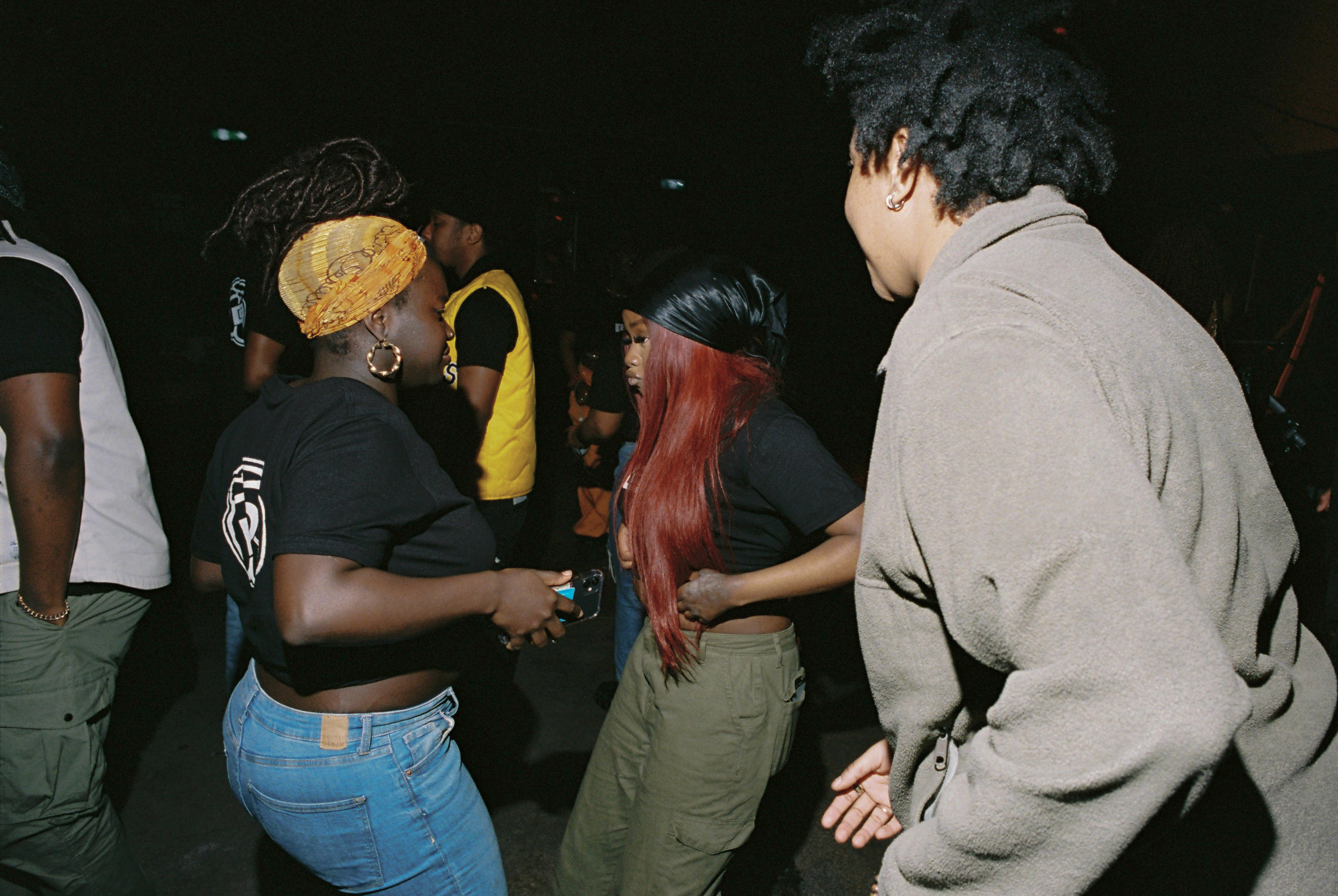
D Wills wants the group to go to Coachella. “I know that’s something very big, but if we keep pushing, it can happen,” he says. “I’m going up with people that are from ends, and it’s amazing to see. I believe it can happen; I know it sounds crazy, but we’ve seen crazy before.” He’s really into manifesting at the moment. He saw an i-D magazine last week, and put some good thoughts out into the world. His newest song is called “Affirmation Pages”, which “basically means to speak about what you want to happen,” he says.
On 17 April, Da Community took over Orii Jam, coming full circle for a group who have been dedicated supporters since the start. Jaiye Ashade, a singer who works at a nursery during the day, always “makes the time to be here,” she says. “Even if I don’t sleep, I have the energy to get through my day.” The whole crew showed up, creating a charged energy from start to finish with freestylers like D Wills and J2 firing lines, Araba creating live art in the courtyard, and DJ Xhnwav and Saadiq T played a soundclash during the break.
The floor vibrated with a mass of bodies responding to the voices and rhythms of the jazz-inflected band on stage, culminating in a lively singalong and dance-off. The evening came from the souls of the 20-person crew and perfectly articulated what Orii Jam and Da Community are all about. “The one thing we have in common is music,” Max says. “Religion is in all different places.”
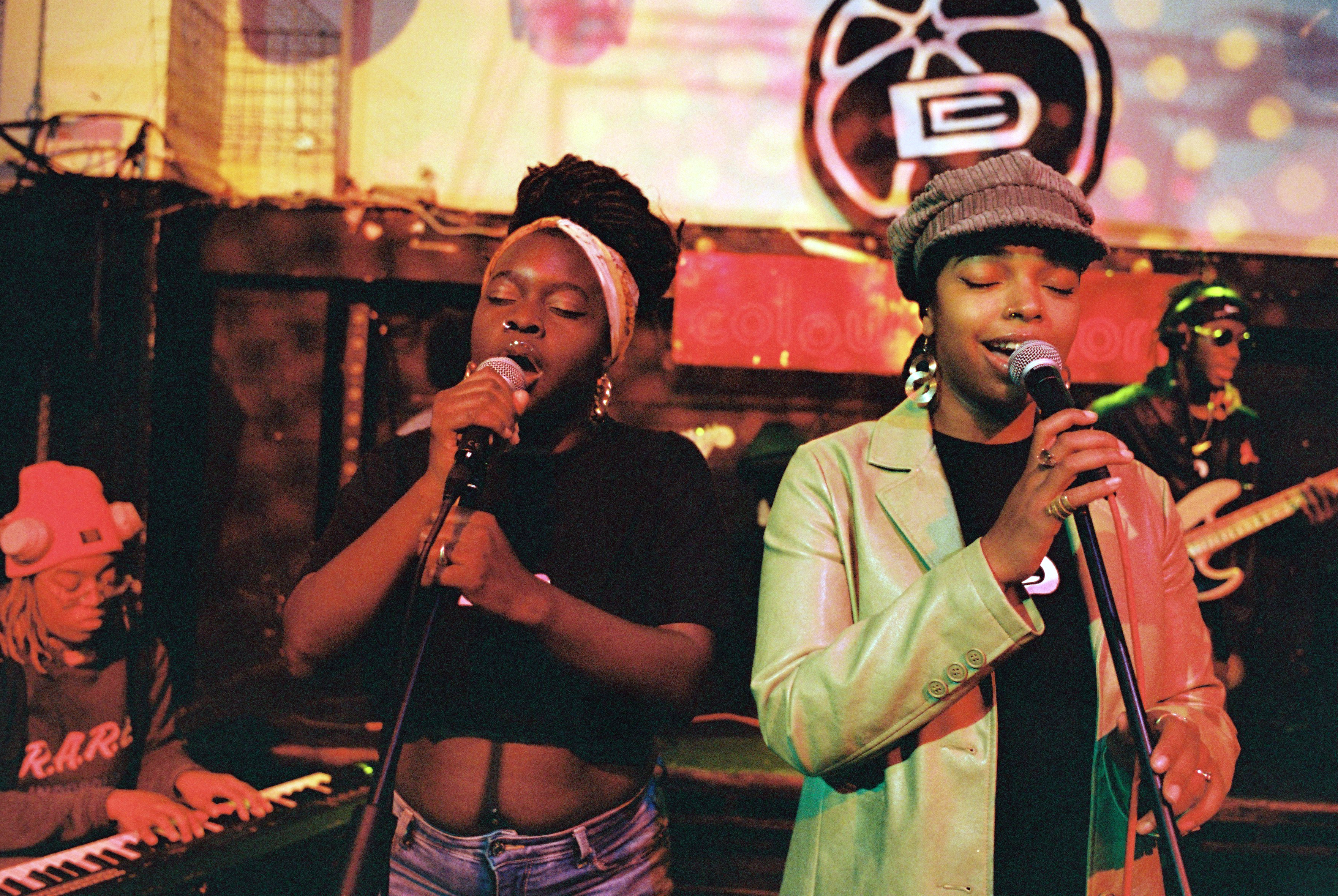
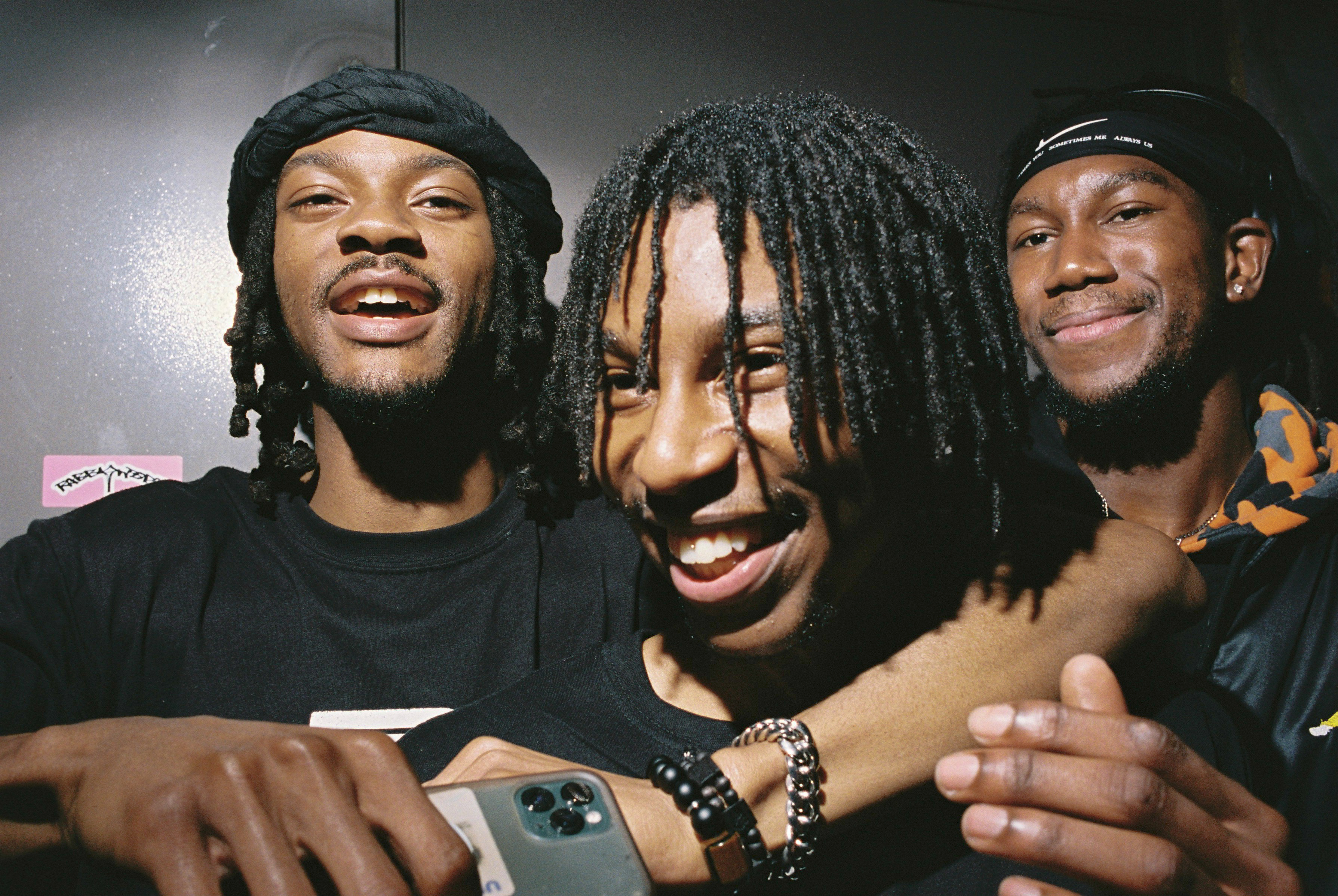
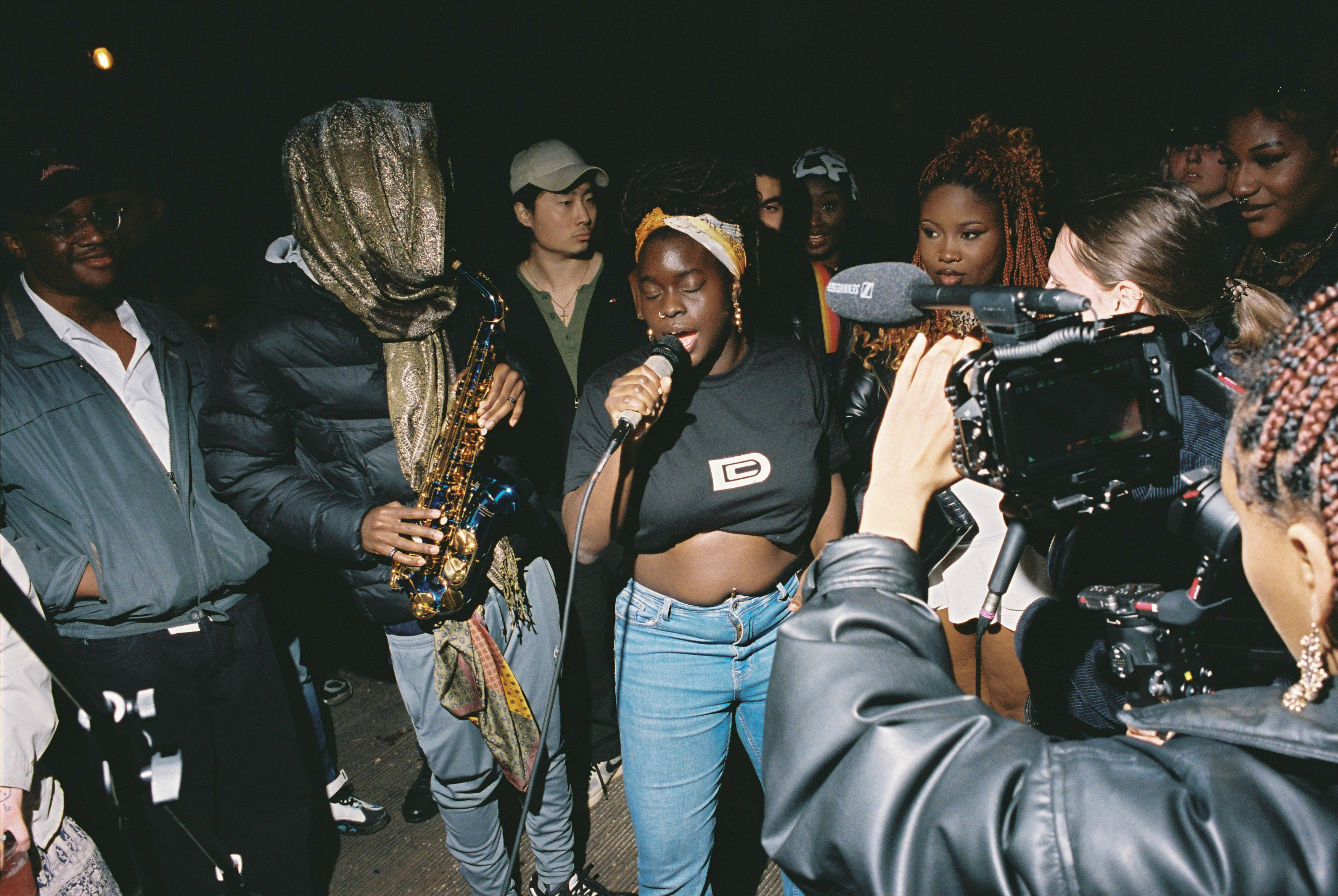
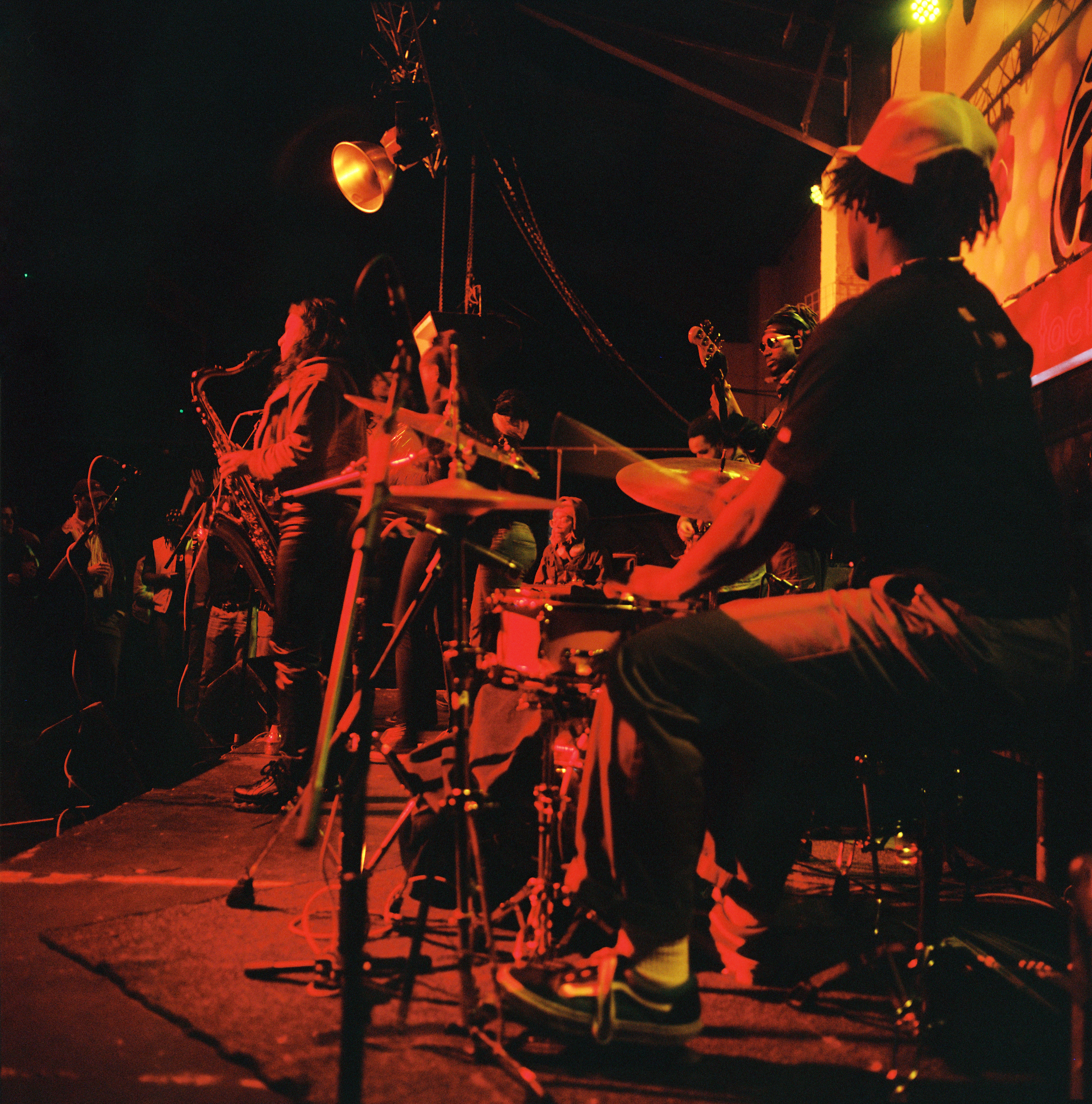
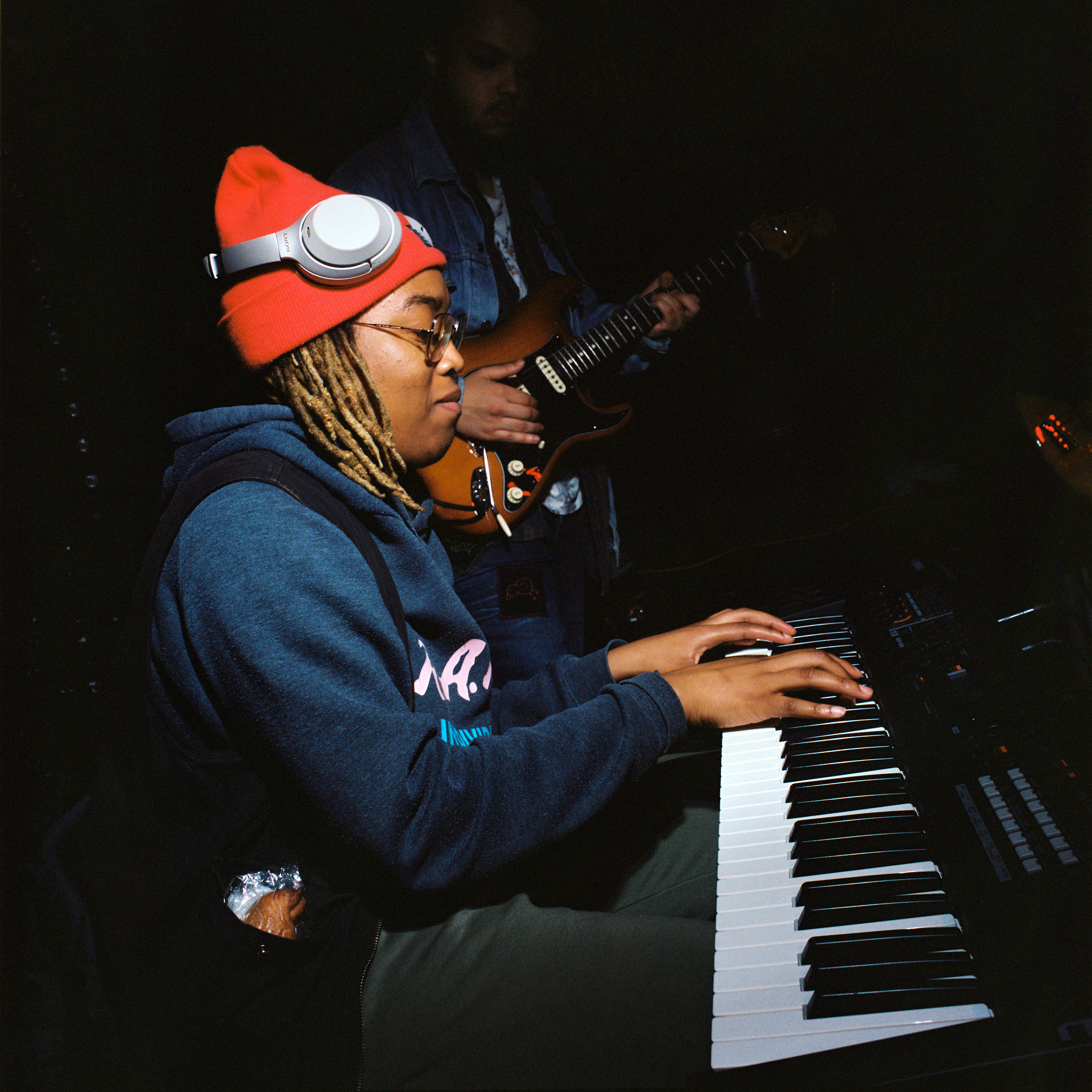
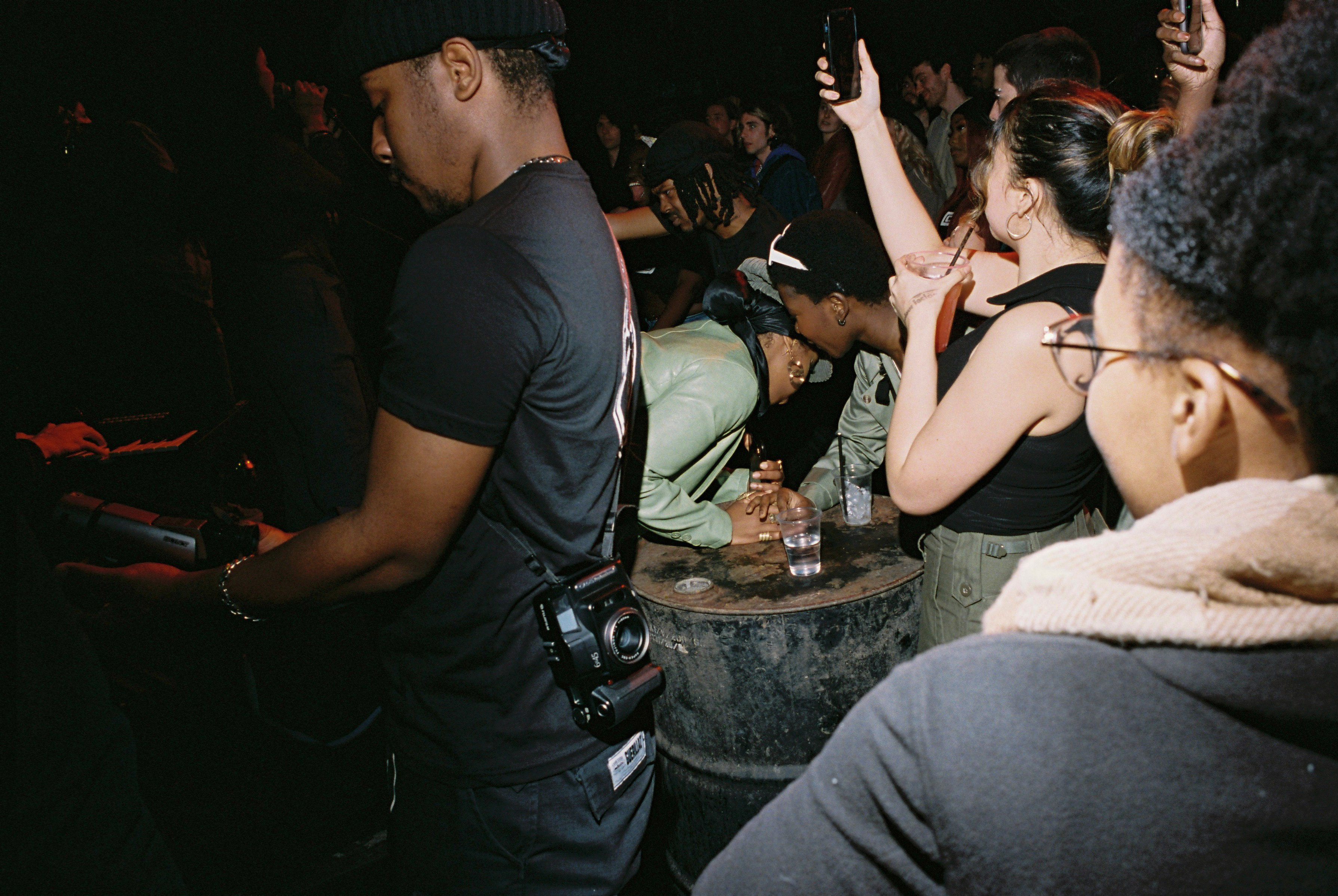
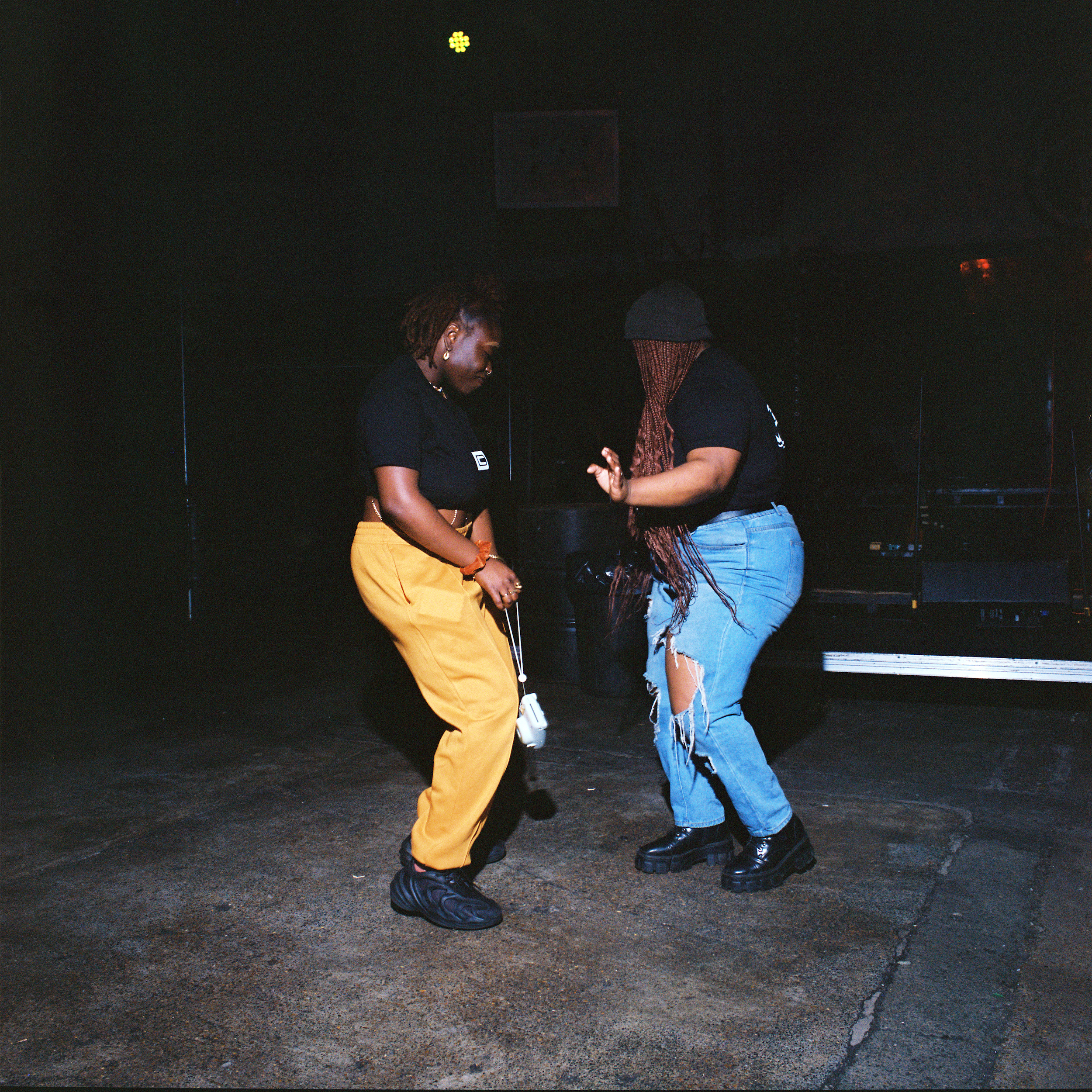
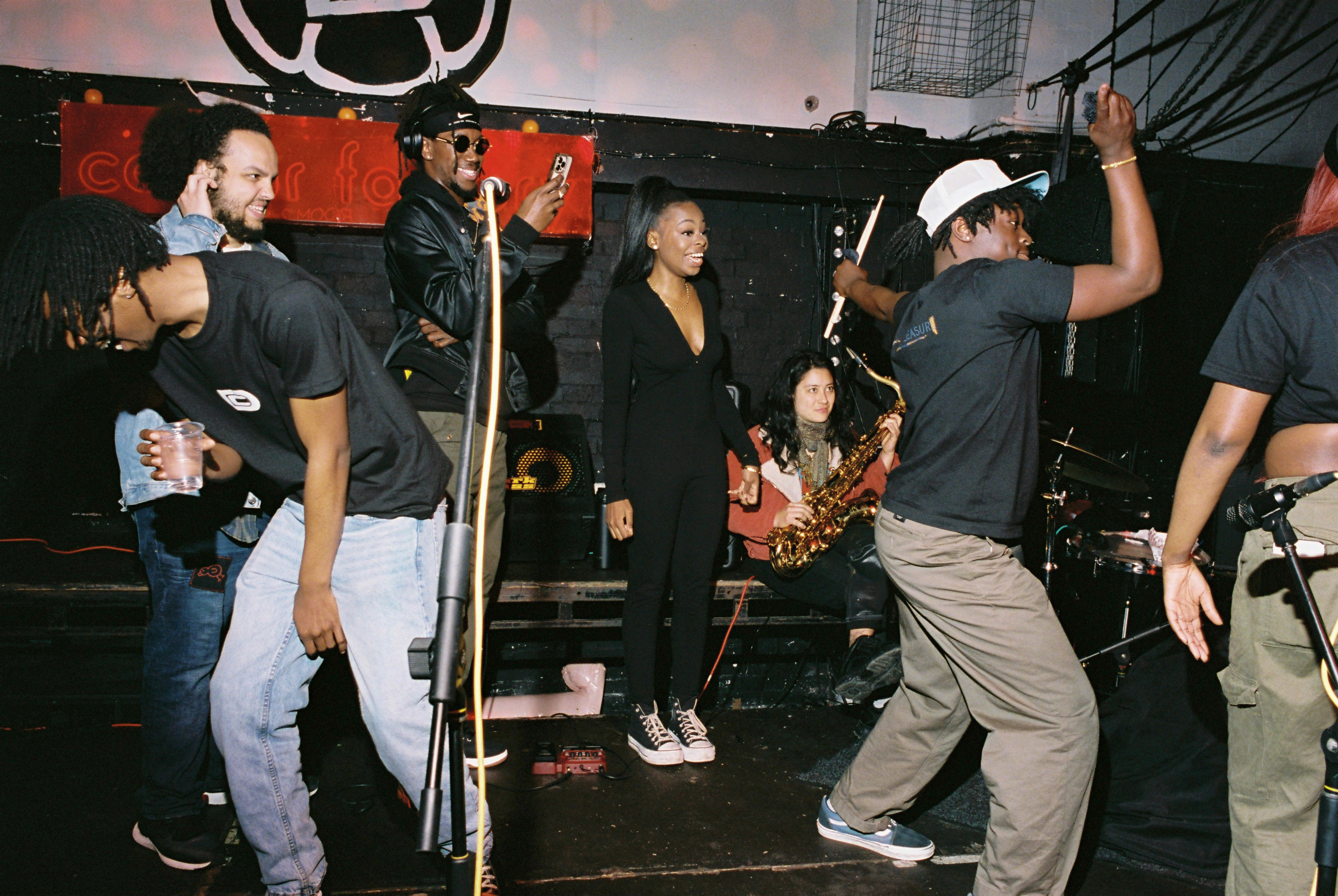
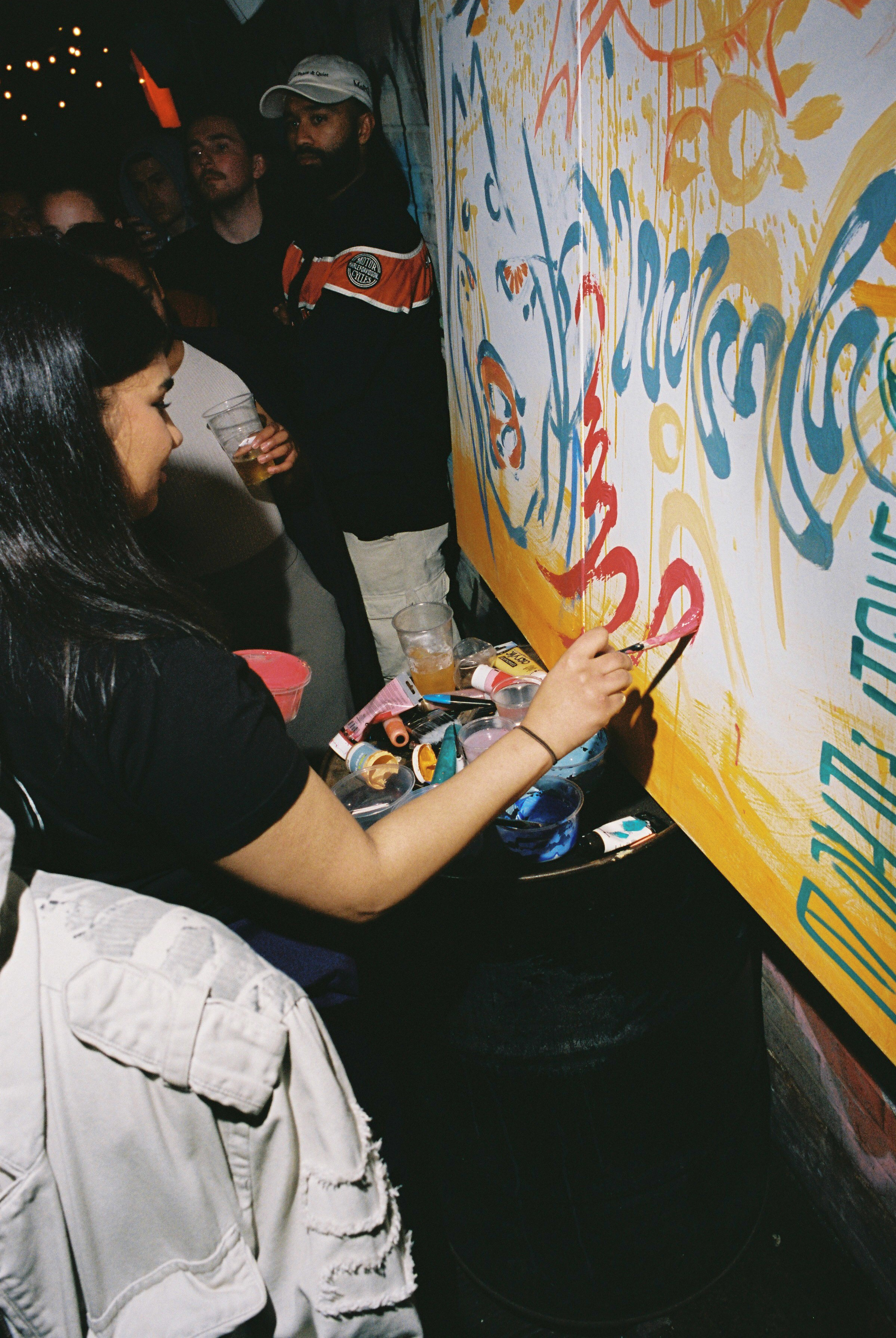
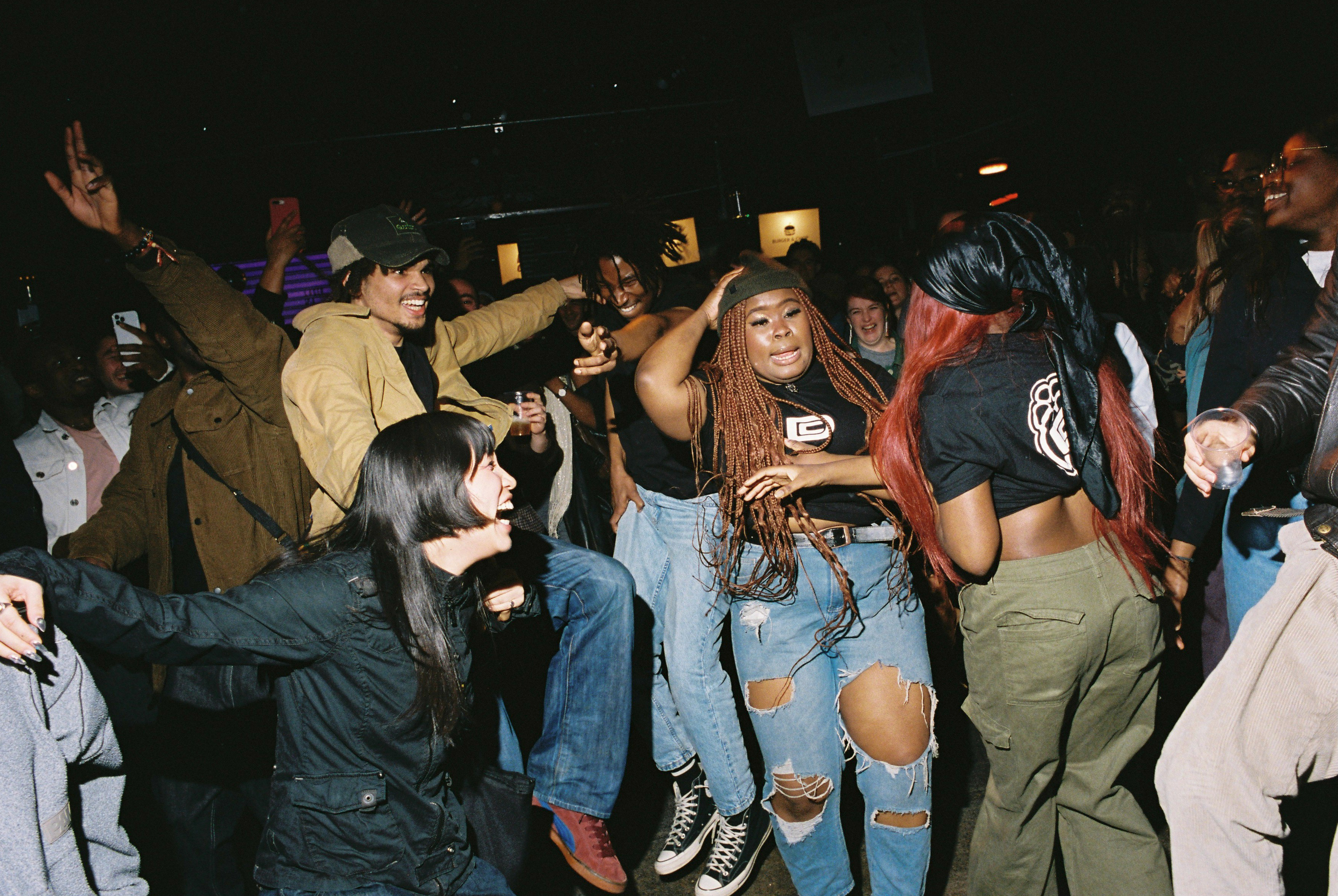
Credits
Photography Alfie White



 ABR Group
ABR Group